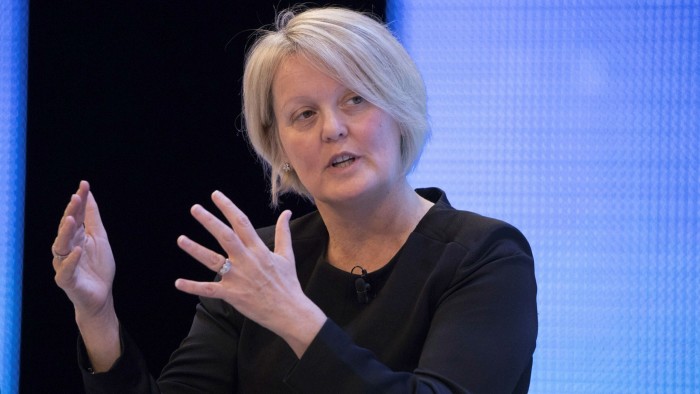FTSE companies push for a quarter of female CEOs by 2025

Roula Khalaf, Editor of the FT, selects her favourite stories in this weekly newsletter.
Unilever, BP, NatWest, Morgan Stanley International and GSK are among the companies behind a campaign to boost the number of female chief executives in the FTSE 100 to 25 in the next four years.
The 25x25 initiative has been backed by more than a dozen companies to help tackle the lack of female senior executives in the UK. The campaign wants 25 female CEOs in the FTSE 100 by 2025, and after that a quarter of the wider FTSE index of listed companies.
Similar campaigns such as the government-backed Hampton Alexander review have mainly been directed at boosting numbers of women more broadly in the boardroom.
These have been successful in particular in adding to the numbers of female non-executives, with more than a third of board seats now occupied by women across the FTSE 350.
However, campaigners are still concerned about the shortfall in female executives, especially at the highest level, with only nine female CEOs across the FTSE 100. There are also only nine female chiefs in the FTSE 250 index of smaller companies.
Tara Cemlyn-Jones, co-ordinator and director of 25x25 Limited, a non-profit organisation, said women faced different obstacles to becoming CEO than joining a board.
A CEO is normally chosen through a long-term process, and often the candidate has run “either a big operational area or . . . a big team of people”.
She described the 25 CEO target as a “directional target . . . it’s an aim. If we only get a handful of companies working well on this [then we] will only end up with a handful of CEOs. And we’ll be back where we started with six or seven women CEOs. So we needed that critical mass of companies to join.”
The 25x25 campaign has been sponsored by Unilever, Admiral, IG Group, BP, NatWest, Morgan Stanley International, GSK, BAE Systems, Deloitte, Linklaters, the Royal Air Force and ITV.
Alan Jope, chief executive of Unilever, said the company had an “aspiration to reach gender balance in our top 500 senior positions by 2025, and are keen to learn how we can do even better through partnerships like 25x25”.
Companies that have signed up so far have signalled a commitment to trying to ensure women are given opportunities at the right time in their career progression. The plans come after consultation with more than 200 companies, including 90 per cent of the FTSE 100.
Best practices regarding succession planning and talent management have been drawn up, looking at how to help with the career path to CEO, alongside better accountability and targets.
Clear progression routes are seen as important to provide a structure for women to plan their careers.
Alison Rose, chief executive of NatWest, said the bank had strong female representation at the most senior levels, which had been achieved through focusing on succession plans and building a robust talent pipeline.
“But our progress does not stop there, we continue to focus on recruiting, advancing and retaining women and working towards our strategic targets to achieve gender balance at the highest levels.”
The group will develop two data tools: a public version to encourage companies, shareholders, stock indices and other organisations to track gender balance at executive leadership levels; and a private benchmarking tool designed for its members.
This data could be used to support indices of companies ranked by their results on gender balance, alongside ESG criteria.
Bernard Looney, CEO of BP, said the group had made good progress on gender parity among its top 120 leaders by 2025 — “but we still have more work to hit the target and that’s why we’re teaming up with 25x25”.
Comments